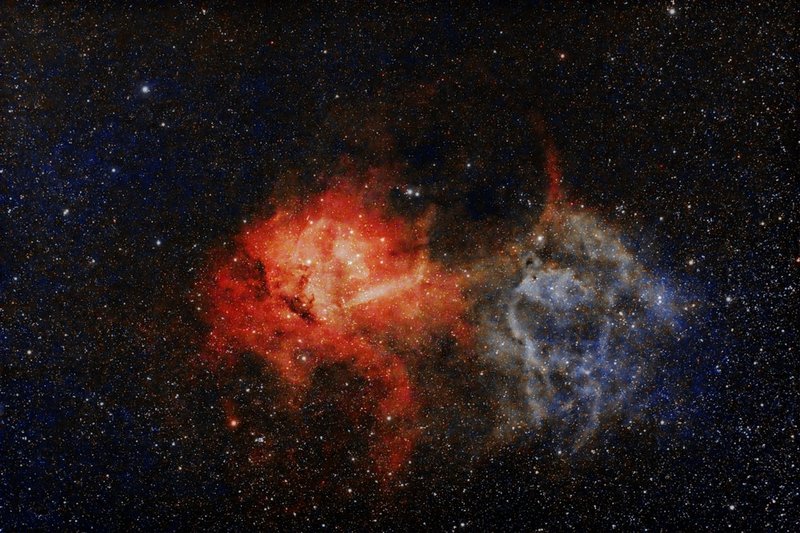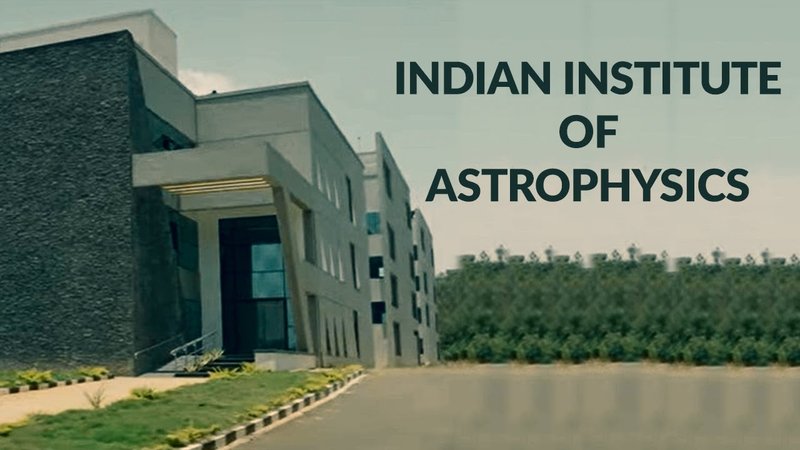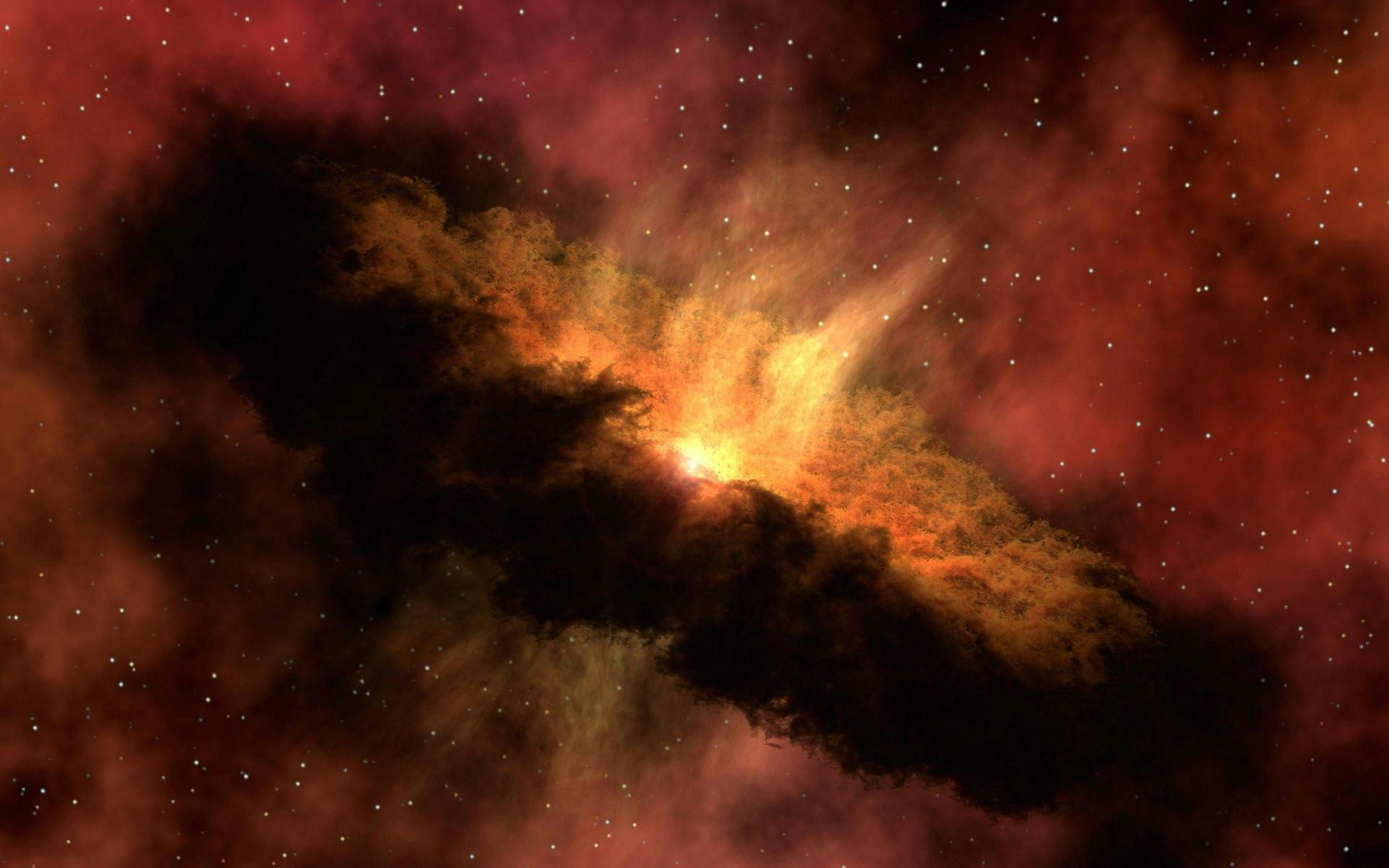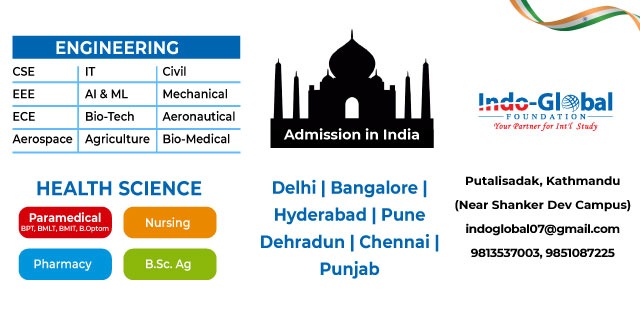Ever looked up at the night sky and wondered what’s really out there? If questions about the universe, stars, black holes, and galaxies fascinate you, then a career in astrophysics might be your true calling. And the good news is—you don’t have to go abroad to chase this dream.
You can study astrophysics in India at some of the finest institutions that offer world-class education, cutting-edge research opportunities, and access to advanced telescopes and observatories. From undergraduate programs to research-based PhDs, astrophysics courses in India are designed to fuel your curiosity and prepare you for exciting careers in space science, academia, or data science.
In this blog, we’ll explore how to get started, the best astrophysics colleges in India, and what it really takes to step into this fascinating field. Whether you’re a student just beginning your journey or someone looking to specialize, this guide will help you navigate your options and plan your path in astrophysics.
What is Astrophysics?

In simple terms, astrophysics is the science of the universe. It’s a branch of space science that applies the laws of physics and chemistry to explain the birth, life, and death of celestial bodies. Astrophysicists study stars, planets, galaxies, black holes, and cosmic radiation. It’s where science meets the stars!
Why Study Astrophysics in India?
India is rapidly becoming a global hub for space science and astrophysics, offering a unique blend of academic excellence, research opportunities, and real-world application. Here are some compelling reasons why studying astrophysics in India is a smart choice for aspiring astronomers and space scientists:
Home to ISRO – A World-Class Space Agency
The Indian Space Research Organisation (ISRO) is one of the most respected space agencies in the world. Known for its cost-effective and highly successful missions like Chandrayaan (moon mission), Mangalyaan (Mars Orbiter Mission), and Aditya-L1 (sun mission), ISRO provides students with inspiration and real-world context for their studies. Many astrophysics programs in India are closely linked with ISRO, offering students opportunities for internships, research collaborations, and eventual careers.
World-Renowned Institutes
India is home to prestigious institutions that offer astrophysics and space science programs at both undergraduate and postgraduate levels. Leading institutes include:
- Indian Institute of Science (IISc), Bangalore – One of the most prestigious science universities in India, known for its strong research programs in physics and space science.
- Indian Institutes of Technology (IITs) – Several IITs offer top-ranked courses in physics, astronomy, and space technology with excellent labs and research opportunities.
- Inter-University Centre for Astronomy and Astrophysics (IUCAA), Pune – A leading institute focused specifically on astronomy and astrophysics, perfect for students who want to dive deep into research.
- Tata Institute of Fundamental Research (TIFR), Mumbai – Renowned for its advanced studies in physics and cosmology, TIFR is a dream destination for aspiring astrophysicists.
These institutions offer the best astrophysics courses in India and help students build a strong foundation in both theory and research.
Affordable and High-Quality Education
Compared to universities in the U.S., U.K., or Europe, India offers high-quality education at a fraction of the cost. Tuition fees, living expenses, and research costs are significantly lower, making it an attractive destination for both domestic and international students. Scholarships and fellowships are also widely available for deserving candidates.
Strong Academic and Research Environment
Students have access to some of the most advanced facilities and equipment, including:
- Optical and radio telescopes
- Supercomputing centers for data analysis
- Collaborations with global observatories and missions
The academic environment promotes innovation, with many universities partnering with national observatories and global institutions for joint research projects.
A Growing Job Market and Future Opportunities
India's investment in space exploration and satellite technology continues to grow. With the success of missions like Chandrayaan-3 and Aditya-L1, there is a rising demand for skilled astrophysicists, astronomers, and data analysts in both government and private sectors. Careers can span across space agencies, research institutions, teaching, aerospace companies, and even international organizations like NASA or ESA.
Studying astrophysics in India not only provides a solid academic foundation but also places students at the forefront of one of the most exciting and rapidly advancing scientific fields in the world.
Top Colleges to Study Astrophysics in India
If you're fascinated by black holes, galaxies, and the origins of the universe, a degree in Astrophysics or Astronomy can open doors to a universe of possibilities. India has some world-renowned institutions offering specialized programs in astrophysics, space science, and cosmology.
Here’s a list of the top astrophysics colleges in India, known for their academic excellence, research output, and global collaborations.
1. Indian Institute of Science (IISc), Bangalore

- Programs: Integrated PhD, MSc, and PhD in Physics with a focus on Astrophysics
- Specialty: Advanced research in space science, strong faculty, access to national observatories
- Admission: JEST / GATE / JAM / Institute Entrance
2. Indian Institute of Astrophysics (IIA), Bangalore

- Programs: Integrated M.Tech + PhD in Astronomical Instrumentation, PhD in Astrophysics
- Specialty: Premier institute for astronomy research, works closely with ISRO
- Admission: IIA Screening Test + Interview
3. Inter-University Centre for Astronomy and Astrophysics (IUCAA), Pune

- Programs: PhD in Astronomy and Astrophysics (in collaboration with Savitribai Phule Pune University)
- Specialty: Leading research center in theoretical and observational astrophysics
- Admission: IUCAA-NCRA Admission Test (INAT)
4. Tata Institute of Fundamental Research (TIFR), Mumbai

- Programs: PhD in Physics with a focus on Astrophysics and Cosmology
- Specialty: Cutting-edge research in high energy astrophysics, radio astronomy, cosmology
- Admission: TIFR GS Entrance + Interview
5. Aryabhatta Research Institute of Observational Sciences (ARIES), Nainital
- Programs: PhD in Astrophysics (in collaboration with Central and State Universities)
- Specialty: Optical astronomy, solar physics, stellar physics
- Admission: Based on CSIR-NET / GATE + Interview
6. Birla Institute of Technology and Science (BITS), Pilani
- Programs: MSc Physics with Electives in Astrophysics, Research opportunities
- Specialty: Good for interdisciplinary exposure and research-based learning
- Admission: BITSAT (UG) or department-level selection for PG/PhD
7. Savitribai Phule Pune University (SPPU), Pune
- Programs: MSc in Physics with Astrophysics Specialization, PhD in Astrophysics (via IUCAA)
- Specialty: Strong academic base and research collaboration with IUCAA
- Admission: Based on university entrance or national-level exams
8. Osmania University, Hyderabad
- Programs: MSc in Astronomy and Astrophysics
- Specialty: Among the few Indian universities offering a full-fledged MSc in Astrophysics
- Admission: Based on university-level entrance exam
9. Indian Institute of Space Science and Technology (IIST), Thiruvananthapuram
- Programs: BTech, MTech, and PhD with focus on Space Science and Technology
- Specialty: Autonomous institute under ISRO; great for applied astrophysics
- Admission: JEE Advanced (UG), GATE (PG)
10. Jawaharlal Nehru University (JNU), Delhi
- Programs: MSc in Physics, PhD in Astrophysics through the School of Physical Sciences
- Specialty: Theoretical astrophysics and cosmology
- Admission: CUET-PG (MSc), JRF/NET or Institute Test (PhD)
Courses You Can Take
Astrophysics is usually pursued after completing an undergraduate degree in physics, but here are some specific courses at various levels:
- Bachelor’s Level: A B.Sc. in Physics with astrophysics electives is the most common path. A B.Tech in Engineering Physics or Aerospace Engineering can also be a good foundation.
- Master’s Level: M.Sc. in Astrophysics, Astronomy, or Physics are popular options. Some institutes also offer M.Tech programs in Space Technology or Applied Physics.
- Ph.D. Level: You can pursue specialized research in astrophysics, cosmology, or space science at institutes like TIFR, IISc, and IIA.
Pro Tip: Focus on building a strong foundation in mathematics and physics during your undergraduate studies, as these are crucial for understanding astrophysics concepts.
Entrance Exams for Astrophysics in India
Depending on the institute and the level of study, here are some key entrance exams you’ll need to be aware of:
- JEE Advanced: For admission to B.Tech programs in IITs.
- IISER Aptitude Test: For admission to BS-MS dual degree programs at IISERs.
- JAM (Joint Admission Test for M.Sc.): For M.Sc. Physics admissions in IITs and IISc.
- JEST (Joint Entrance Screening Test): For Ph.D. admissions in physics or astrophysics.
- GATE: For M.Tech or Ph.D. admissions in space-related fields.
- TIFR GS: Entrance test for graduate school admissions at TIFR.
- IUCAA-NCRA Entrance Test: For astrophysics and radio astronomy research programs.
Skills Needed to Succeed in Astrophysics
While a deep interest in the cosmos is essential, there are some key skills you’ll need to succeed in astrophysics:
- A strong foundation in mathematics and physics.
- Proficiency in programming languages like Python, MATLAB, or C++ for simulations and data analysis.
- Analytical thinking and a natural curiosity about how the universe works.
- Patience and perseverance—astrophysics often requires years of observation and data analysis before answers emerge.
Career Opportunities After Studying Astrophysics
Astrophysics offers a wide range of career paths, both in research and beyond. As a graduate, you can pursue careers as a research scientist, working with organizations like ISRO, NASA, or DRDO. If you’re passionate about teaching, you can become a professor and work in universities or research institutes, guiding future astrophysicists.
You can also apply your skills as a data analyst, where astrophysical modeling skills are in demand, especially in tech, finance, or even artificial intelligence fields. Those with a keen interest in space technology may pursue careers as aerospace engineers, working on space missions and satellite development.
Additionally, science communicators who can explain complex astrophysical phenomena to the public are always in demand, whether in media, museums, or science outreach programs.
Key Research Institutes and Observatories in India
India has several important institutes and observatories dedicated to space and astrophysics research:
- ISRO (Indian Space Research Organisation): India’s premier space agency conducting space missions like Chandrayaan and Aditya-L1.
- ARIES (Aryabhatta Research Institute of Observational Sciences): Known for its contributions to astronomical research.
- IUCAA (Inter-University Centre for Astronomy and Astrophysics): A leading research center.
- IIA (Indian Institute of Astrophysics): A top institute focused on astrophysical research.
- GMRT (Giant Metrewave Radio Telescope): A premier radio telescope for astrophysical research.
- TIFR (Tata Institute of Fundamental Research): A research institute dedicated to fundamental physics, including astrophysics.
Final Thoughts
Astrophysics isn’t just a subject—it’s a journey into the unknown. And if your dream is to explore galaxies, understand cosmic mysteries, or even contribute to space missions, then India offers a fantastic launchpad. With the right mix of passion, preparation, and perseverance, you can build a stellar career in astrophysics without ever leaving the country.
So, what’s holding you back? The universe is calling—are you ready to answer?
FAQ
Q: Can I study astrophysics in India?
Yes, India offers excellent programs in astrophysics at institutions like the Indian Institute of Science (IISc), Indian Institutes of Technology (IITs), and specialized centers like the Indian Institute of Astrophysics (IIA) and IUCAA.
Q: How much does it cost to study astrophysics in India?
The cost ranges from ₹20,000 to ₹2,00,000 per year in public institutions, depending on the program and institute. Scholarships are widely available for meritorious students.
Q: Which IIT is best for astrophysics?
IIT Bombay is considered one of the best for astrophysics, offering strong research opportunities and collaboration with premier institutes like TIFR and IUCAA.



















